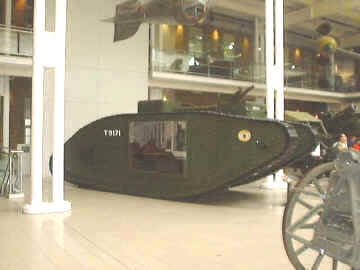The Battle of Flers-Courcelette (September 1916) was a subsidiary attack of the Battle of the Somme. However, what happened at the Battle of Flers-Courcelette was to have a big impact of World War One and was to change warfare forever.
The Battle of Flers-Courcelette was the first occasion that tanks were used in battle. An attack on Flers-Courcelette by the 41st Division was supported by 49 tanks. Such was their lack of reliability that only fifteen got to the Flers-Courcelette area and took part in the battle. Seventeen had simply not got to the front line. In one sense, this fulfilled all that Winston Churchill had feared. A strong supporter of the tank, Churchill was worried that it was being put into use too early.
| “My poor land battleships have been let off prematurely on a petty scale.” Winston Churchill |
The tanks went into battle for the first time on September 15th. Seven failed to start.
A pilot of the Royal Flying Corps saw one of the four remaining tanks out of ten scheduled to attack Flers going down the main road of the village and radioed the following back:
| “A tank is walking down the High Street of Flers with the British Army cheering behind it.” |
|
|
The attacks on Flers-Courcelette did temporarily undermine German morale in the area as rifle fire had little impact on the tanks that got through. Machine gun fire – so devastating against the infantry – also had little impact. In the first three days of the Battle of Flers-Courcelette, the Allies advanced 2 kilometres. The villages of Flers, Courcelette and Martinpuich fell to the Allies as did the strategically desirable High Wood. However, the Allies could not build on this success. The early tanks that had done so much to scare the German troops around Flers-Courcelette, were too unreliable and were susceptible to artillery fire. However, they had done enough to impress Douglas Haig. He ordered that another 1000 be built to assist the Allies on the Western Front.
Related Posts
- Winston Churchill led Great Britain for most of World War Two and Churchill’s ‘bulldog’ spirit seemed to summarise the mood of the British people even…
 A World War One tank
A World War One tank